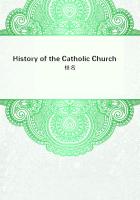HAUTESERRE (Adrien d'), second son of M. and Mme. d'Hauteserre; was of different stamp from his older brother Robert, yet had many things in common with the latter's career. He also was influenced by honor. He also emigrated and, on his return, fell under the same sentence. He also obtained Napoleon's pardon and a commission in the army, taking Robert's place in the attack on Moskowa; and in recognition of his severe wounds became brigadier-general after the battle of Dresden, August 26, 27, 1813. The doors of the Chateau de Cinq-Cygne were opened to admit the mutilated soldier, who married his mistress, Laurence, though his affection was not requited. This marriage made Adrien Marquis de Cinq-Cygne. During the Restoration he was made a peer, promoted to lieutenant-general, and obtained the Cross of Saint-
Louis. He died in 1829, lamented by his wife, his parents and his children. [The Gondreville Mystery.]
HAUTESERRE (Abbe d'), brother of M. d'Hauteserre; somewhat like his young kinsman in disposition; made some ado over his noble birth; thus it happened that he was killed, shot in the attack on the Hotel de Cinq-Cygne by the people of Troyes, in 1792. [The Gondreville Mystery.]
HAUTOY (Francis du), gentleman of Angouleme; was consul at Valence.
Lived in the chief city of Charente between 1821 and 1824; frequented the Bargetons; was on the most intimate terms with the Senonches, and was said to be the father of Francoise de la Haye, daughter of Mme. de Senonches. Hautoy seemed slightly superior to his associates. [Lost Illusions.]
HENRI, police-agent at Paris in 1840, given special assignments by Corentin, and placed as servant successively at the Thuilliers, and with Nepomucene Picot, with the duty of watching Theodose de la Peyrade. [The Middle Classes.]
HERBELOT, notary of Arcis-sur-Aube during the electoral period of spring, 1839; visited the Beauvisages, Marions and Mollots. [The Member for Arcis.]
HERBELOT (Malvina), born in 1809; sister of the preceding, whose curiosity she shared, when the Arcis elections were in progress. She also called on the Beauvisages and the Mollots, and, despite her thirty years, sought the society of the young women of these houses.
[The Member for Arcis.]
HERBOMEZ, of Mayenne, nick-named General Hardi; chauffeur implicated in the Royalist uprising in which Henriette Bryond took part, during the first Empire. Like Mme. de la Chanterie's daughter, Herbomez paid with his head his share in the rebellion. His execution took place in 1809. [The Seamy Side of History.]
HERBOMEZ (D'), brother of the foregoing, but more fortunate, he ended by becoming a count and receiver-general. [The Seamy Side of History.]
HEREDIA (Marie). (See Soria, Duchesse de.)
HERMANN, a Nuremberg merchant who commanded a free company enlisted against the French, in October, 1799. Was arrested and thrown into a prison of Andernach, where he had for fellow-prisoner, Prosper Magnan, a young assistant surgeon, native of Beauvais, Oise. Hermann thus learned the terrible secret of an unjust detention followed by an execution equally unjust. Many years after, in Paris, he told the story of the martyrdom of Magnan in the presence of F. Taillefer, the unpunished author of the dual crime which had caused the imprisonment and death of an innocent man. [The Red Inn.]
HERON, notary of Issoudun in the early part of the nineteenth century, who was attorney for the Rougets, father and son. [A Bachelor's Establishment.]
HEROUVILLE (Marechal d'), whose ancestors' names were inscribed in the pages of French history, during the sixteenth and seventeenth centuries, replete with glory and dramatic mystery; was Duc de Nivron.
He was the last governor of Normandy, returned from exile with Louis XVIII. in 1814, and died at an advanced age in 1819. [The Hated Son.
Modeste Mignon.]
HEROUVILLE (Duc d'), son of the preceding; born in 1796, at Vienna, Austria, during the emigration, "fruit of the matrimonial autumn of the last governor of Normandy"; descendant of a Comte d'Herouville, a Norman free-lance who lived under Henri IV. and Louis XIII. He was Marquis de Saint-Sever, Duc de Nivron, Comte de Bayeux, Vicomte d'Essigny, grand equerry and peer of France, chevalier of the Order of the Spur and of the Golden Fleece, and grandee of Spain. A more modest origin, however, was ascribed to him by some. The founder of his house was supposed to have been an usher at the court of Robert of Normandy.
But the coat-of-arms bore the device "Herus Villa"--House of the Chief. At any rate, the physical unattractiveness and comparative lack of means of D'Herouville, who was a kind of dwarf, contrasted with his aristocratic lineage. However, his income allowed him to keep a house on rue Saint-Thomas du Louvre, Paris, and to keep on good terms with the Chaulieus. He maintained Fanny Beaupre, who apparently cost him dear; for, about 1829, he sought the hand of the Mignon heiress.
During the reign of Louis Philippe, D'Herouville, then a social leader, had acquaintance with the Hulots, was known as a celebrated art *******, and resided on rue de Varenne, in Faubourg Saint-Germain.
Later he took Josepha Mirah from Hulot, and installed her in fine style on rue Saint-Maur-du-Temple with Olympe Bijou. [The Hated Son.
Jealousies of a Country Town. Modeste Mignon. Cousin Betty.]
HEROUVILLE (Mademoiselle d'), aunt of the preceding; dreamed of a rich marriage for that stunted creature, who seemed a sort of reproduction of an evil Herouville of past ages. She desired Modeste Mignon for him; but her aristocratic pride revolted at the thought of Mlle.
Monegod or Augusta de Nucingen. [Modeste Mignon.]
HEROUVILLE (Helene d'), niece of the preceding; sister of Duc d'Herouville; accompanied her relatives to Havre in 1829; afterwards knew the Mignons. [Modeste Mignon.]















